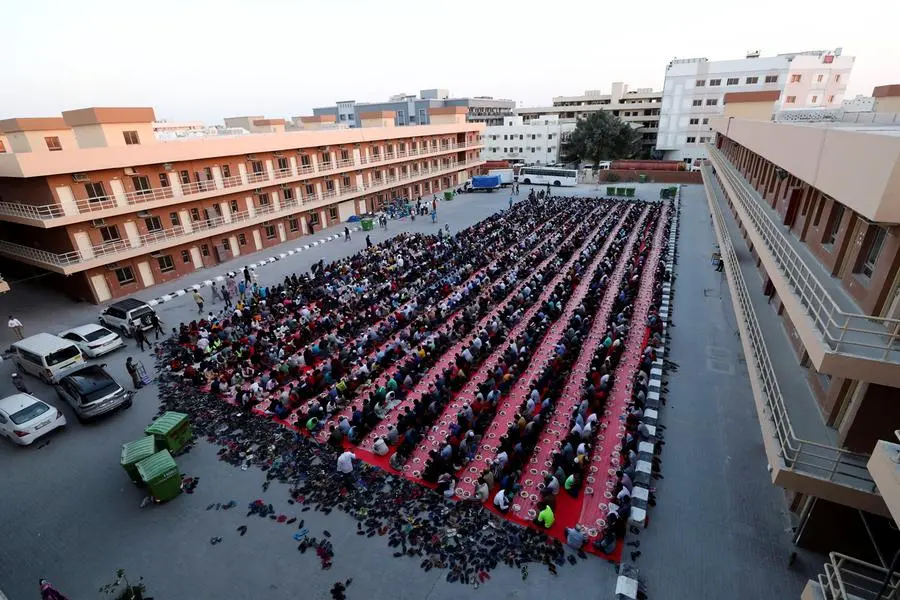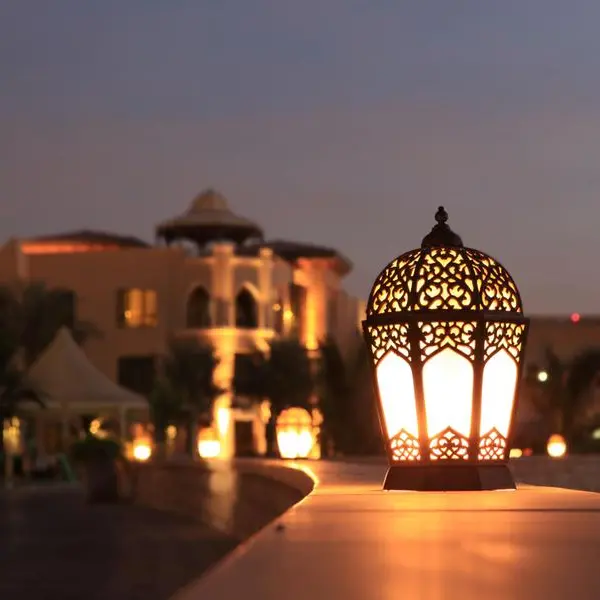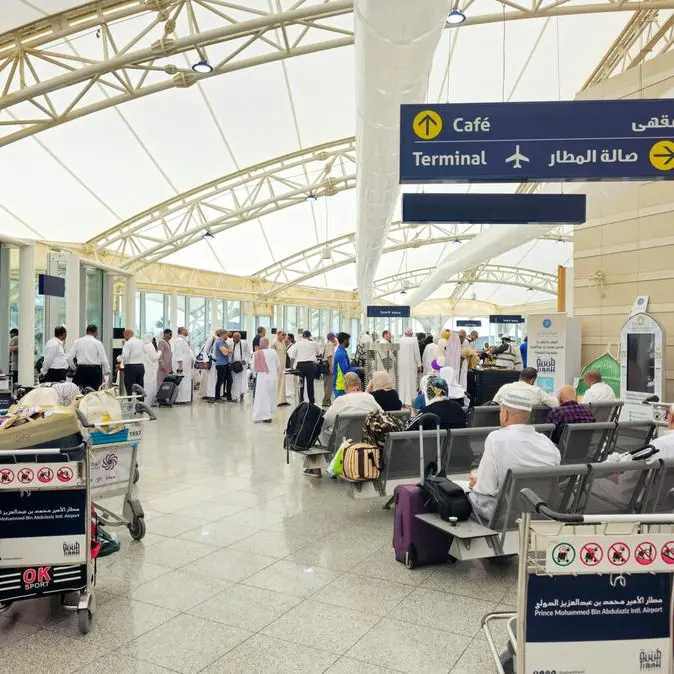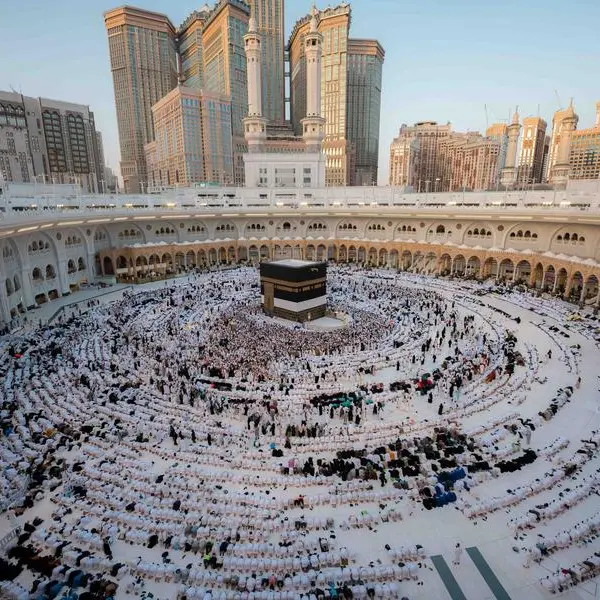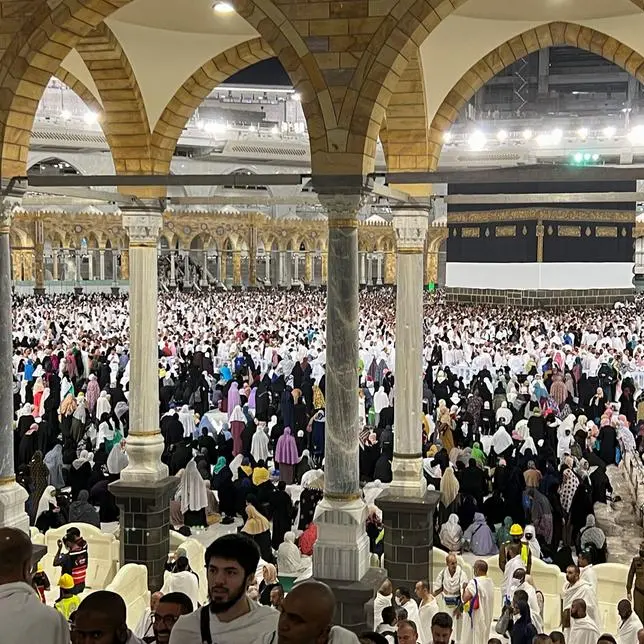PHOTO
UAE - Come Ramadan, open areas, bylanes and labour accommodations of UAE turn into giant Iftar tables. Hundreds of thousands of Iftar meals are distributed for free every single day during the holy month. There will be an Iftar tent at every nook and corner of the Emirates.
Free meal boxes are handed out by police officials and volunteers nationwide at traffic junctions to those rushing home to break their fast. Millions of dirhams worth of food are distributed. Workers, who would have otherwise needed to shell out about Dh10 or 15 per meal, are fed to their fill without spending a penny.
Irrespective of religion, race and background, thousands of UAE expats are served fruits, drinks and a sumptuous meal, all for free. For many of them, it is the month that they can send home a little extra cash that they would otherwise spend on food.
Several UAE-based organisations like the Emirates Red Crescent, Islamic Affairs of Charitable Activities Department (IACAD), Beit El Khair and Awqaf actively distribute Iftar kits to those who need them. The Labour Standards Development Authority in Sharjah (LSDA) has continued holding events in Saja’a Labour Park and its Ramadan tent in Sharjah city for more than 4,500 workers daily. The labour park and tent also provided awareness lectures in worker’s languages given by community police as well as preachers hosted by the Department of Islamic Affairs in Sharjah.
Have you ever wondered about the cost of these massive undertakings? Who pays for it, who coordinates the logistics and who distributes it? KT spoke to four organisations that are part of this ecosystem.
Detailed calculations
Each day the Model Service Society (MSS) distributes 12,000 meals across 3 locations in the UAE. In the 15 years the organisation has been doing Iftar distribution, there has never been a case of food poisoning and neither have they turned back anyone coming to them for a meal.
According to a long-time volunteer Shajil Shoukath, much of their logistical management comes from years of experience. He said very detailed and minute calculation goes into organising the distribution each day.
“We have been working with several local kitchens and have a fair idea of what to expect,” he said. “For example, we know that 1mann (unit of measurement) of biryani, which is 4kgs of rice and 4kgs of chicken, is suitable for 30 people. The 4kgs of chicken are equivalent to 5 chickens. Each chicken has to be cut precisely into 6 equal pieces. Similarly, 1 watermelon will feed 30 people at two slices each. One orange is for three people and has to be cut into exactly six slices."
Shajil says that this precise calculation is the reason why the organisation prefers contributors to pay to the list of kitchens they work with rather than bring their own food. “Last week, we had a company who promised to feed 1,000 people and wanted to bring in their own food,” he said. “However, when the time came, they were only able to deliver 700 meals. So we immediately contacted one of our kitchens and got them to deliver 300 meals so that people wouldn’t go hungry.”
Having worked with most of the kitchens for many years, Shajil says the advantage is the trust factor. “When we call a kitchen and tell them to deliver packets, they never ask when the money will be given,” he said. “They know and trust us. Once the packets are delivered, we pay them from the donations we get the following day or week.”
Of spreadsheets and calculations
Social worker Anees from a volunteer group called Team Iftar used to service up to 54 camps across the UAE during Ramadan before Covid-19 pandemic. The group was one of the first to start the Iftar distribution campaign in 2002.
He has a detailed spreadsheet with the number of people in camps across three emirates. “Each year, we used to calculate the number of people in a camp on the 25th day of Ramadan,” he said. “Because the number of people in a camp reaches its highest during the last 10 days of the month. So, for the following year that would be the starting number we would work with.”
In addition to the regular camps, the team also has a rotating list of camps that would be contacted in case there was an excess amount of food. “None of these camps were struggling for money but they were happy to accept food if there was any excess,” he said. “We would give food to each of them in turns.”
The Excel sheet was accessible to the core group of volunteers who would jot down details every day about the number of people in the camp, the amount of food delivered and notes that can be referred to for the following years.
Since the pandemic, Team Iftar has drastically cut down its operations to limit itself to just a handful of camps. “We now work closely with the Awqaf and service around four or five camps in Sajja,” he said.
According to British expat Siamah Qader, who runs Merciful Hands in Dubai and distributes Iftar meals to camps in Jebel Ali industrial area, no amount of food is too much. “We started with 1,000 meals this year,” she said. “But within the first ten days, there were 2,000 people coming so we had to ramp up our operations. On days when there is more packets of food than the people who come, we go to neighbouring camps and drop them off. There is never a situation where we have too much food. There are always takers for it.”
Contributions and volunteering
According to Zehra Naqvi from the Giving Family which has been distributing thousands of Iftar kits to labourers in the Al Quoz area, donations come from various quarters. “There are people who donate small numbers like 10 or 20 packs,” she said. “Then there are corporate donations that come. If anyone cannot afford to contribute money to give out meals, we ask them to come and volunteer at the camps to earn their hasanah (bounty). No amount or effort is too small during this holy month.”
Around 70 volunteers turn up at the Giving Family’s Iftar box distribution every day. Over the two years it has been functioning, at least 400 people have volunteered with the organisation.
Most organisations say that the number and amount of donations are rarely ever lacking. “There is a certain beauty of this month,” said Shajil. “The donations start small but always increase in leaps and bounds as the month progresses. There has never been a situation where we want to feed people and we don’t have donation. I think it is the blessing of this month.”
According to Shajil, the contributions come in from various quarters. “There are a lot of Emiratis who contribute directly to some of the kitchens we work with,” he said. “When that happens, they divert the food packets to us and we do the distribution.”
MSS has over 250 volunteers across the country who help in its activities. In addition to distributing Iftar kits, MSS also coordinates with the IACAD for volunteering and Iftar meal distribution at the Sharjah Grand Mosque.
Copyright © 2022 Khaleej Times. All Rights Reserved. Provided by SyndiGate Media Inc. (Syndigate.info).
